A Forest Full of Surprises
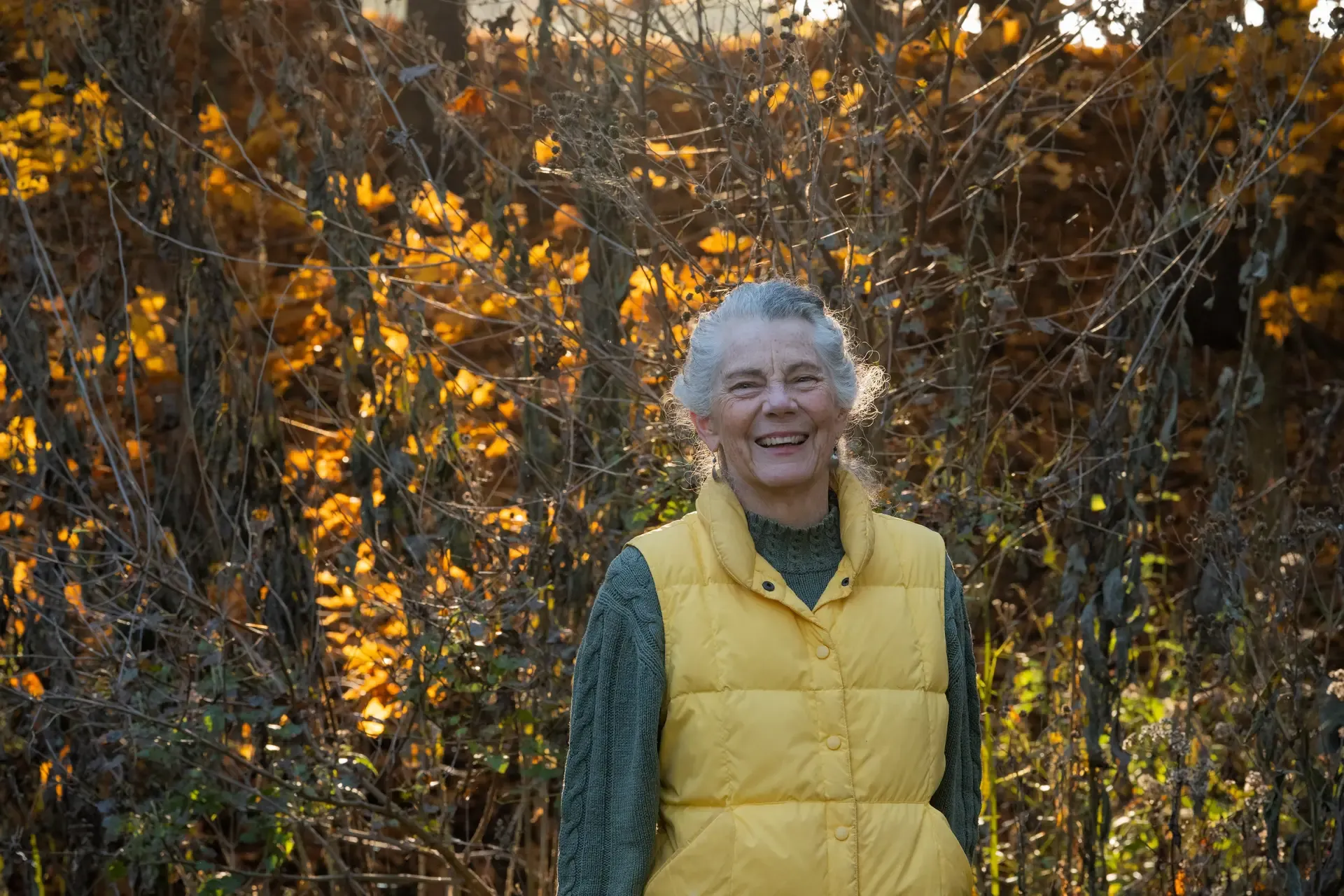
Landowner Kathy McClure on her Pennsylvania property
A hidden wildflower field, butterflies dancing among the ironweed, and beavers hard at work building their new home. Pennsylvania landowner Kathy McClure’s property is full of small surprises that come together to create a magical place for her family.
Jon and Kathy McClure acquired their Beaver County property in 1983, while seeking a “place with space” to raise their two sons. Since acquiring their land, they have participated in the Abandoned Mine Reclamation Program program to address an old strip mine and are part of the Pennsylvania Game Commission.
The property had been a working farm since the 1850’s, with many of the fields being pastured and tilled. After purchasing the land, Kathy slowly realized that they would need to address the damage done to those pieces of land.
“One of the things that has struck me the most is that I assumed that if I just left everything alone and didn’t do any harm, that it would all come back by itself. So, this part hasn’t been grazed in 30 years, and the wildflowers don’t come back,” Kathy explained. “I just can’t believe that nature didn’t heal, it takes a long, long time.”
That’s when they discovered a program designed to help family forest owners like them. They first heard about the Family Forest Carbon Program (FFCP) when driving past a billboard on the Pennsylvania Turnpike. “I think the key words were ‘family forest’ that resonated with me.” Kathy recalls. “I thought, okay I’m a family forest maybe this would work for me.”
As the only improved forest management program that caters to small landowners, FFCP gave the McClure’s a new opportunity for forestry support they would not have had otherwise.
“We didn’t know of any programs then. I didn't think we qualified for any of them,” Kathy explained. “It’s very hard for us private landowners to get into the game because it’s expensive.”
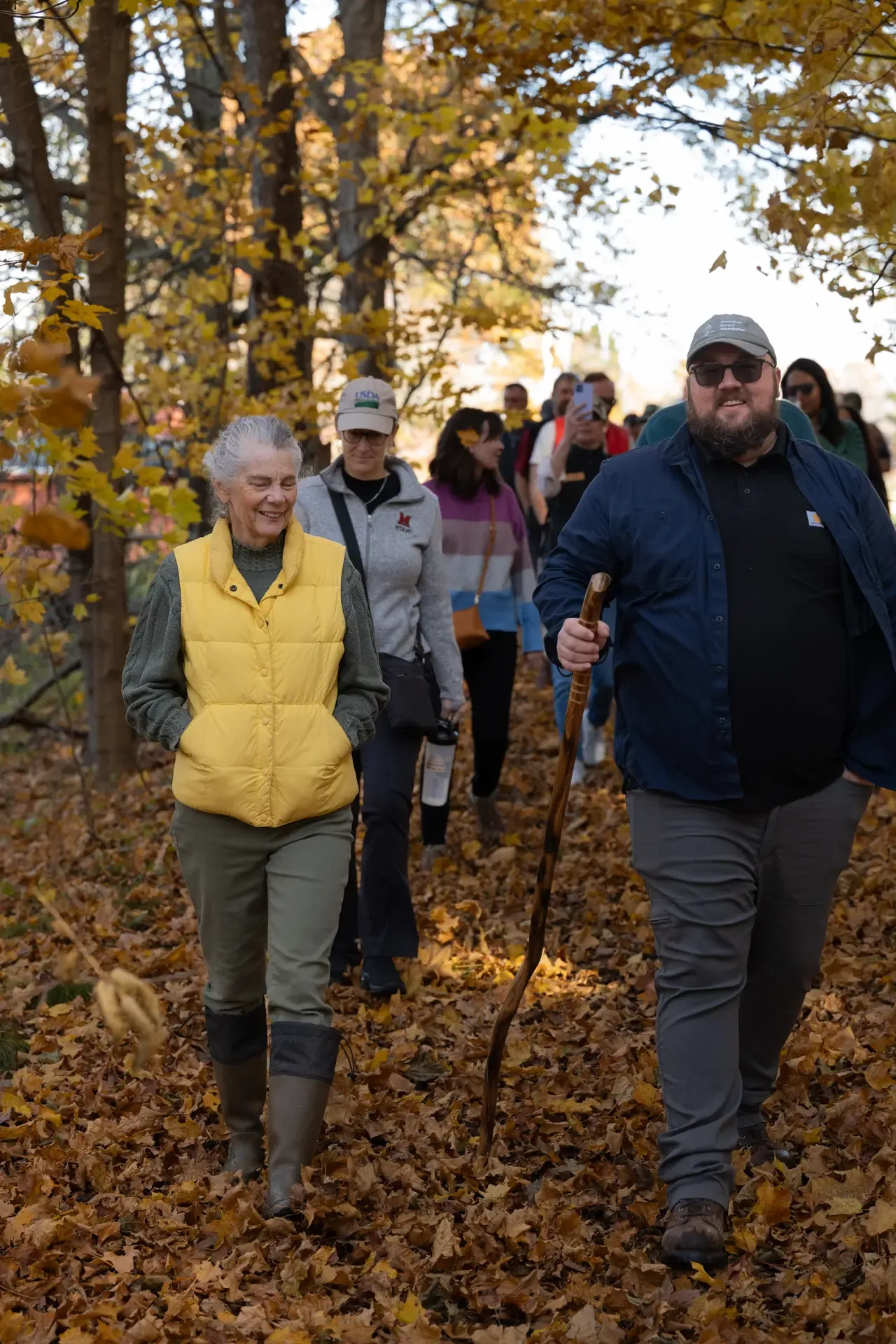
Forester Ian Forte and Landowner Kathy McClure guide AFF partners through Pennsylvania property
The McClures took their time with the enrollment process, making sure to read the fine print so they felt certain and comfortable about their decision. “They treated us with respect, even though we were small,” Kathy said. Once enrolled in FFCP, they began to learn more about what was occurring on their property, and how to properly manage it.
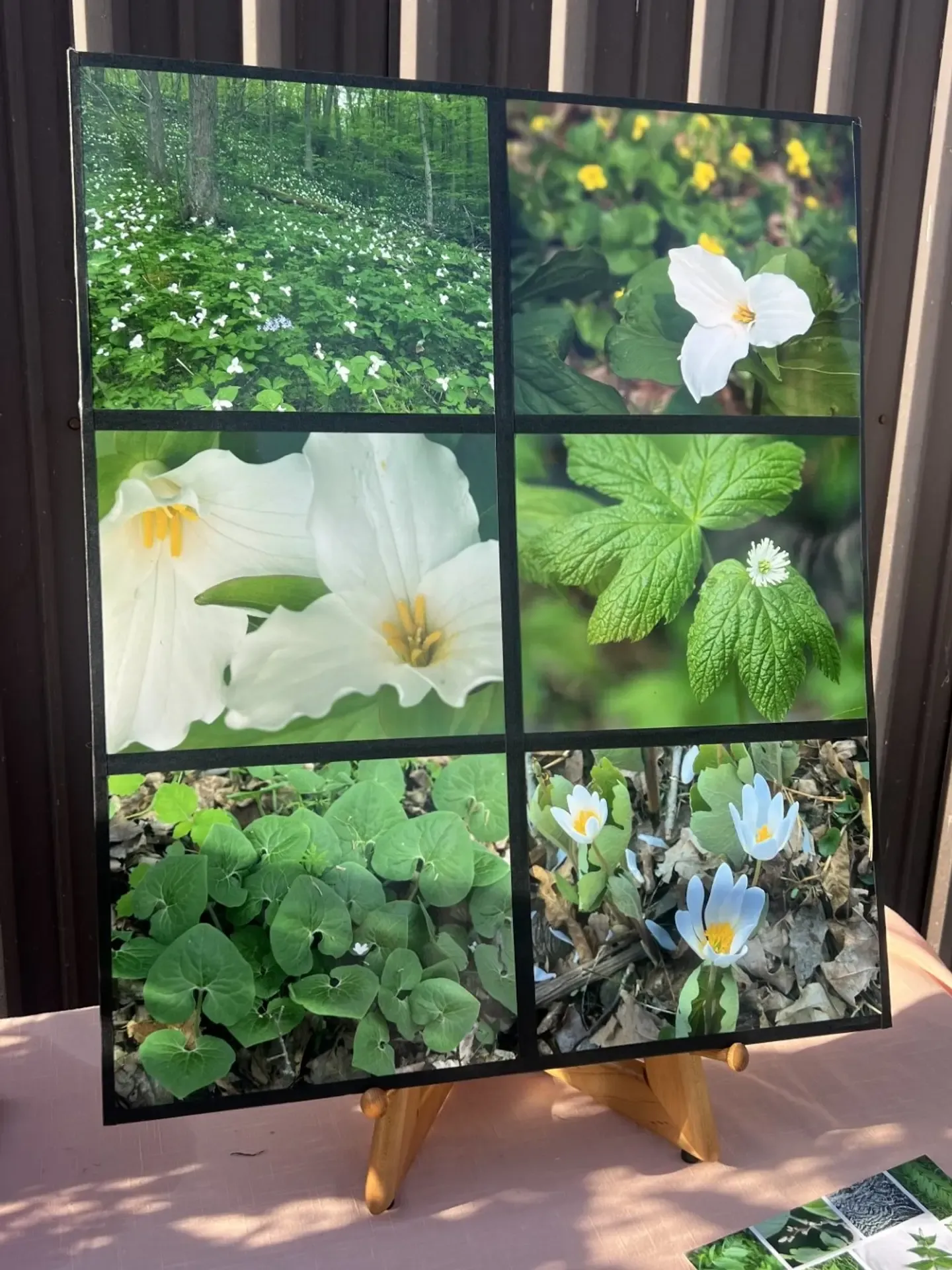
A collection of trillium photos from the ephemeral woodland
Kathy has “a lot of little projects” she is working on throughout her property that FFCP can aid in through financial and technical support. A few years after moving in, she stumbled upon a hidden field of trillium wildflowers, which has since become one of her favorite places as she works to preserve the delicate ecosystem. Kathy wrote in a trillium photo book she gifted to AFF CEO & President Rita Hite, “The Trillium woodlands have brought peace, joy, and wonder to all who have visited this special place, the woods deserve our protection.”
There is a hay field on the property that was cut a few times a year, until it was retired recently and had transformed into a purple field of ironweed that was full of monarch chrysalis and butterflies by August. “My grandkids came, and they're walking through, and they were finding all sorts of interesting things in it, and I realized, what a real treasure.” Kathy said of the surprise.
“So, we took our kid's playfield, tilled it up and put in a wildflower mix. And it really has been awesome. A lot of fun.” Kathy describes another wildflower haven on the property, which has since become a verified meadow by the Penn State Extension.
Along with the plants, they have had some interesting animal guests on the land, including a beaver that made a dam in their stream. There is even a tree nearby where you can see the marks made by the beaver’s teeth when they chopped it down. They have since installed a critter cam to spy on their little visitors.
When their forester, Emma, first visited, she was able to identify more invasive species than they originally thought. “We didn’t realize at first when we came. We’ve been here for over 30 years now, almost 40 years and if we had tackled this 30 years ago it would have been so much easier,” Kathy shared of the upsetting news. “I’m excited that we're starting.”
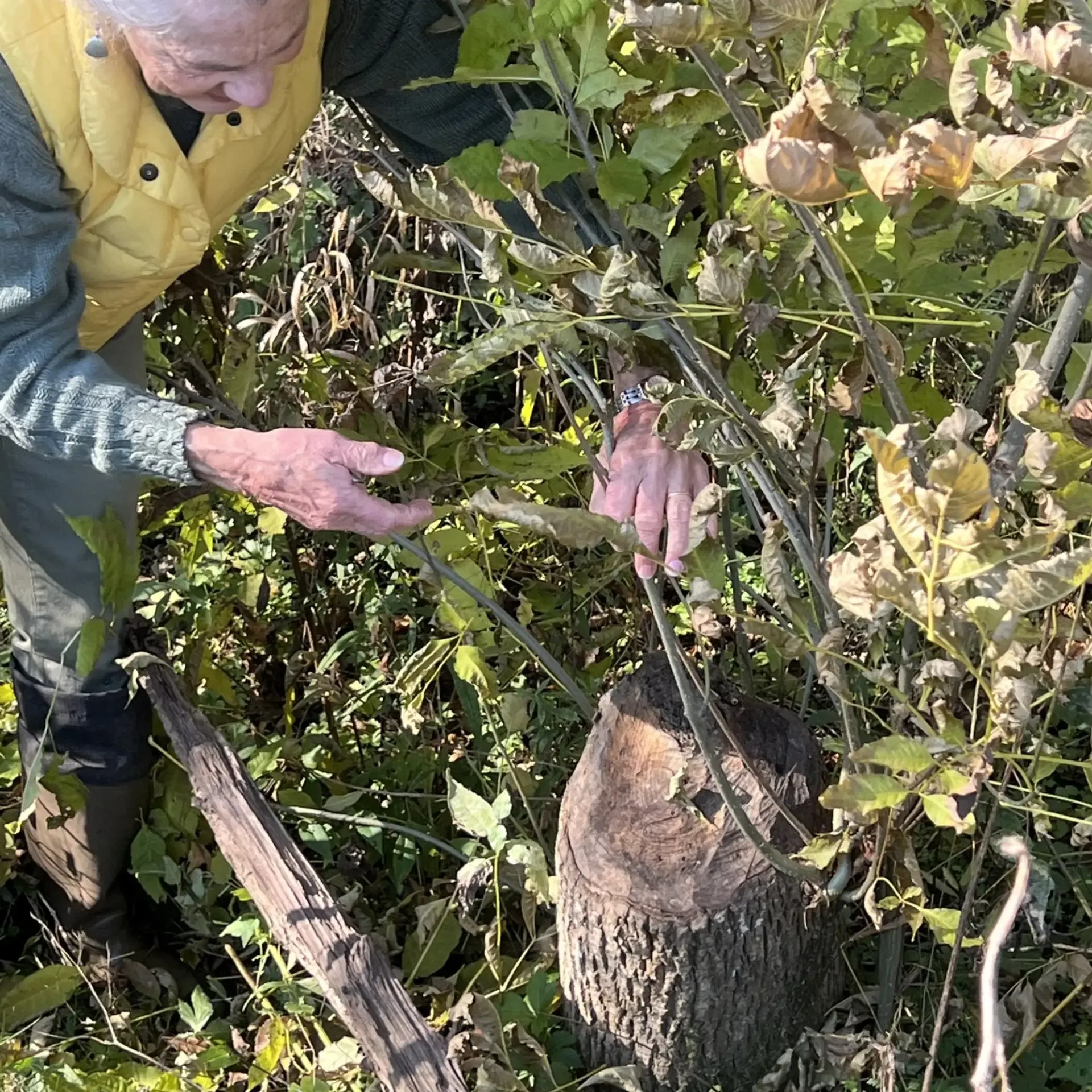
Kathy points to a tree that has been chopped down by a beaver on her property
The property is dealing with invasives like tree of heaven, Japanese honeysuckle, multiflora rose, and burning bush. They also discovered that some invasives are getting dangerously close to the ephemeral woodlands that Kathy is working to protect. The McClure’s property is an integral part of their story, and each and every part of it has value to them, they are thankful they chose to enroll in FFCP and now have professional expertise that can help them protect the areas they love so deeply.
“I’m very excited to work with some professional foresters because I know that it's going to take hard work,” Kathy said. “Then we're going to try to take the funds that we get paid to help pay for services to help us control invasives and the other things we can do to make it a healthier farm.”
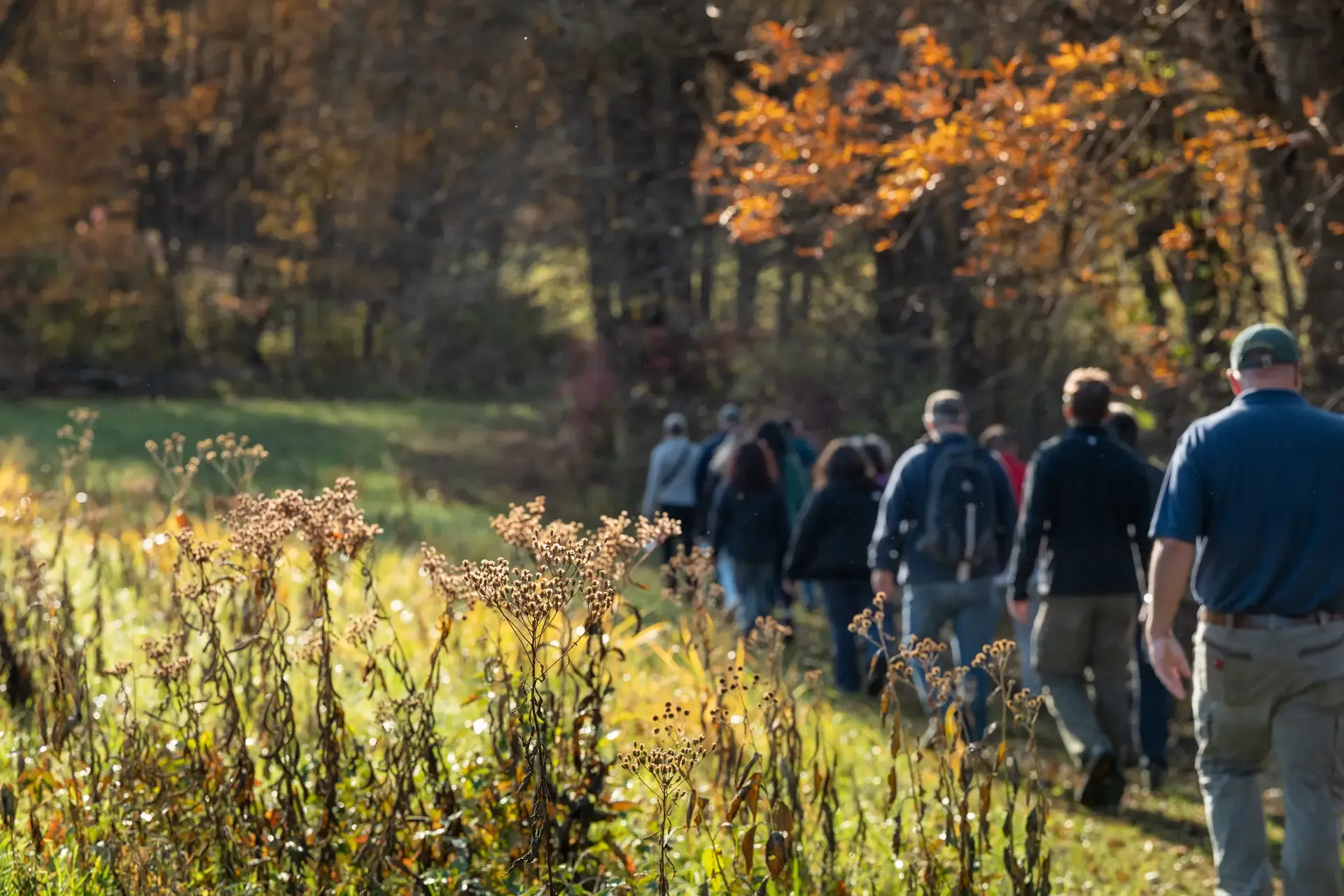
American Forest Foundation team members and partners exploring the McClures' property.
Today, the McClure’s land is a cherished spot for her whole family and Kathy hopes to sustain it for her grandkids and their future families. With the financial support of FFCP she will be able to continue with her projects, and with the technical expertise of foresters she will be able to properly maintain the forest that she calls home.
When asked what she would say to landowners who are on the fence about enrolling Kathy answered to do your research, take your time, and then, “I would almost say, ‘Why not?’”
Related Articles
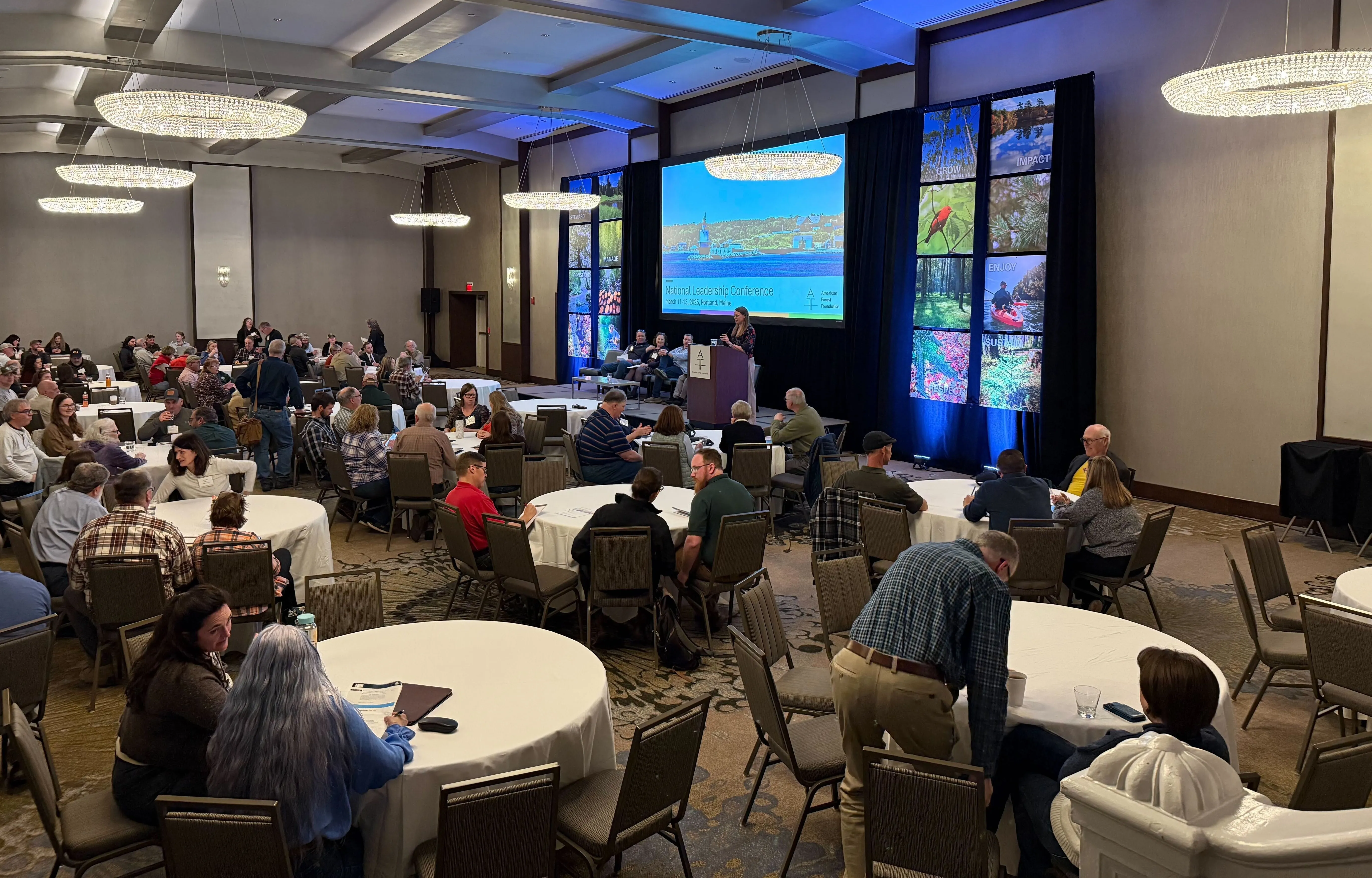
January 15, 2026
2026 American Forest Foundation National Leadership Conference
The American Forest Foundation’s National Leadership Conference brings together leaders, family forest landowners, and advocates from across the country for meaningful connection, learning, and collaboration. The conference is designed to empower participants to strengthen conservation impact on family forest lands, whether on their own property or through work with family forest landowners.
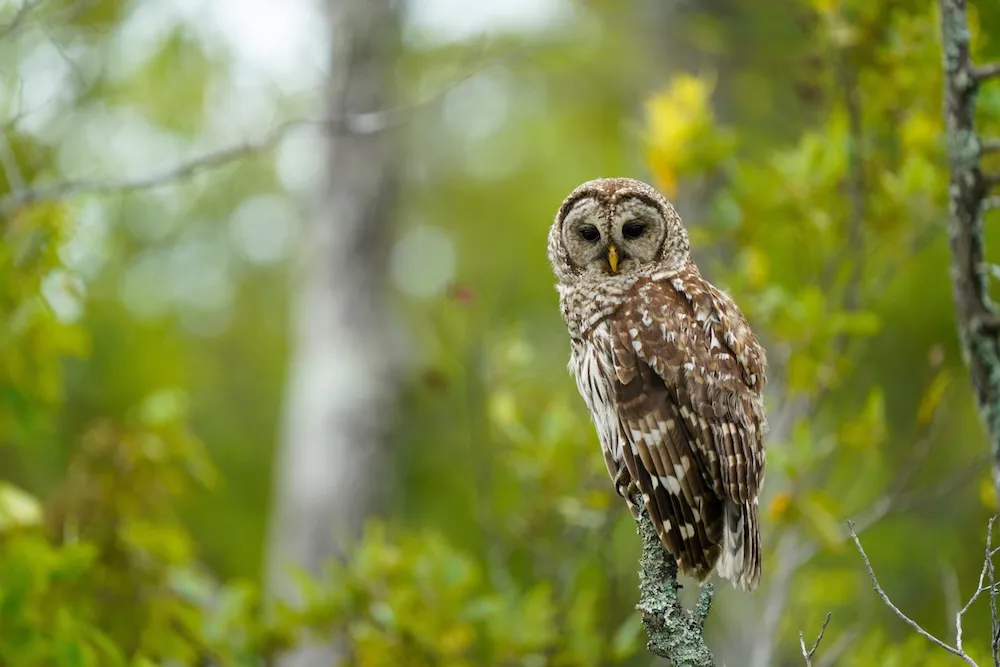
December 18, 2025
Improving Wildlife Habitat with the Family Forest Carbon Program
For many landowners, spotting a fox, songbird, or other wildlife on their property is one of the highlights of spending time on their land. In this post we look at some examples of management practices you may see in your FFCP forest management plan and how they help create the ideal conditions for certain wildlife species.
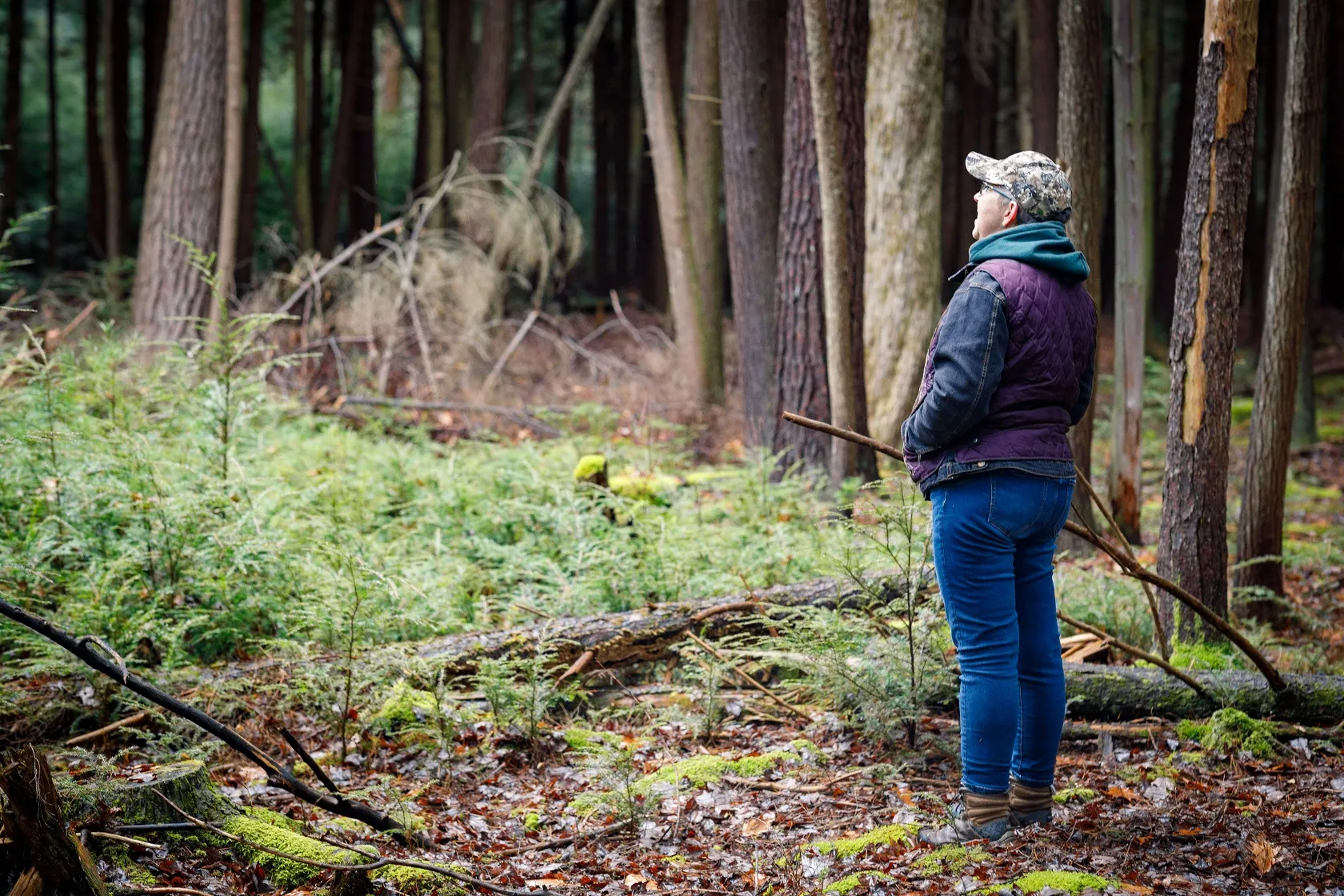
December 16, 2025
Family Forest Carbon Program's First Ever Credits Delivered to REI Co-op
Today, REI becomes the first buyer to receive carbon credits from the Family Forest Carbon Program (FFCP), a high-integrity forest carbon project designed for small-acreage landowners.